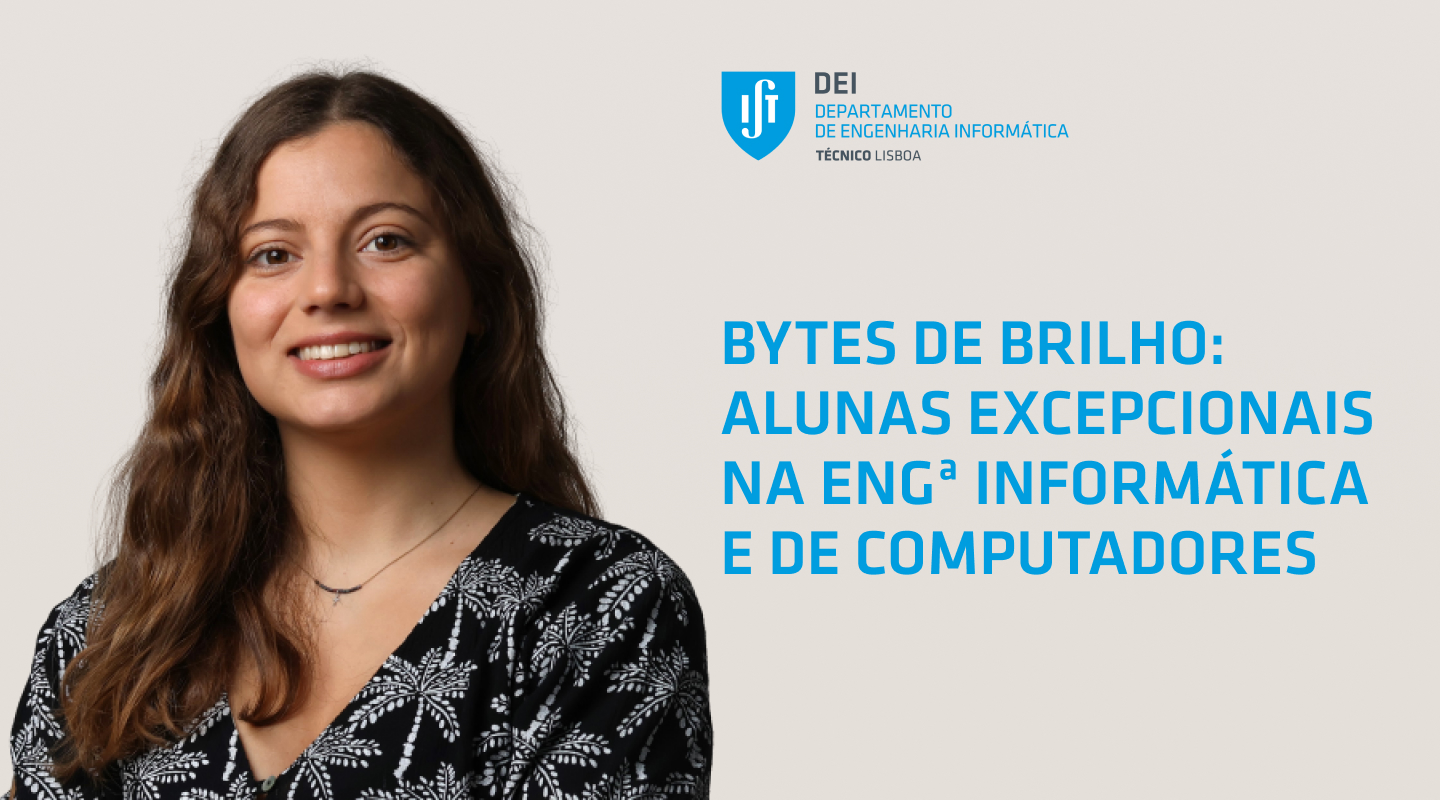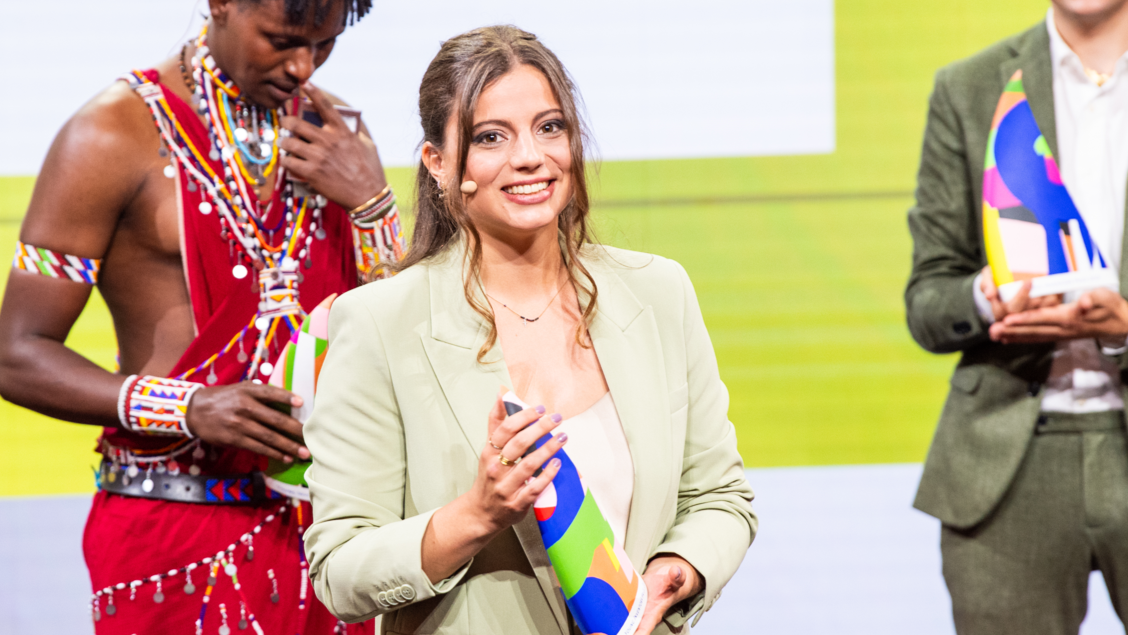Shine Bytes: outstanding students in Computer Science and Engineering

In this edition of Shine Bytes we interview Filipa Rocha, who secured the second place in the European Inventor Award 2023.
Tell us a little about yourself and your journey at IST
My name is Filipa de Sousa Rocha, and I am a Computer Engineer. I enrolled LEIC in 2014 at Instituto Superior Técnico on the Taguspark Campus, which became a second home to me over the next few years. In addition to spending most of my time studying in the library and working on projects in the labs, I also spent a lot of time in the student association rooms, especially NEIIST and LAGE2. I have always enjoyed getting involved in additional projects beyond academic life, but never at the expense of my studies.After completing my undergraduate degree, it made more sense to me to pursue the MEIC program rather than going into industry. It was during my master's degree that I got to know the Alameda campus better and had the opportunity to collaborate with IEEE IST-SB. It was during my master's thesis that I discovered the field of accessibility in technological education, which I later chose to continue in my doctoral studies. Despite not continuing my studies directly at IST, I am part of the ITI/Larsys research unit and also maintain my connection through teaching.
What did winning this award personally mean to you?
The EPO Young Inventors Award was a very important recognition that gave me even more motivation to continue my work in the field of accessibility, particularly in technological education for children with visual impairments. This is an essential tool for the future of our children.
Why are awards like this important?
Recognition from a renowned institution like the EPO allows the dissemination of the work conducted in our country's institutions worldwide. In addition to showcasing scientific advancements, in our case, it also promotes the diverse and gender-inclusive multidisciplinary team, which can serve as inspiration for future generations.
In your opinion (aside from awards ;) ), what can and should be done to attract more women to science?
In recent years, various initiatives to promote the participation of women in STEM fields were developed. These include school visits, mentorship programs and courses for young girls. In my opinion, these are the initiatives that make a difference in the community and should continue to be promoted.
Do you have any advice for future female students in Computer Science and Engineering at Técnico?
My advice is not to be afraid or ashamed to "take a step forward." I know that often, the stigma of being a woman in computer science is negative and demoralizing, but if we don't actively contribute to the change, there's no guarantee that change will come.

